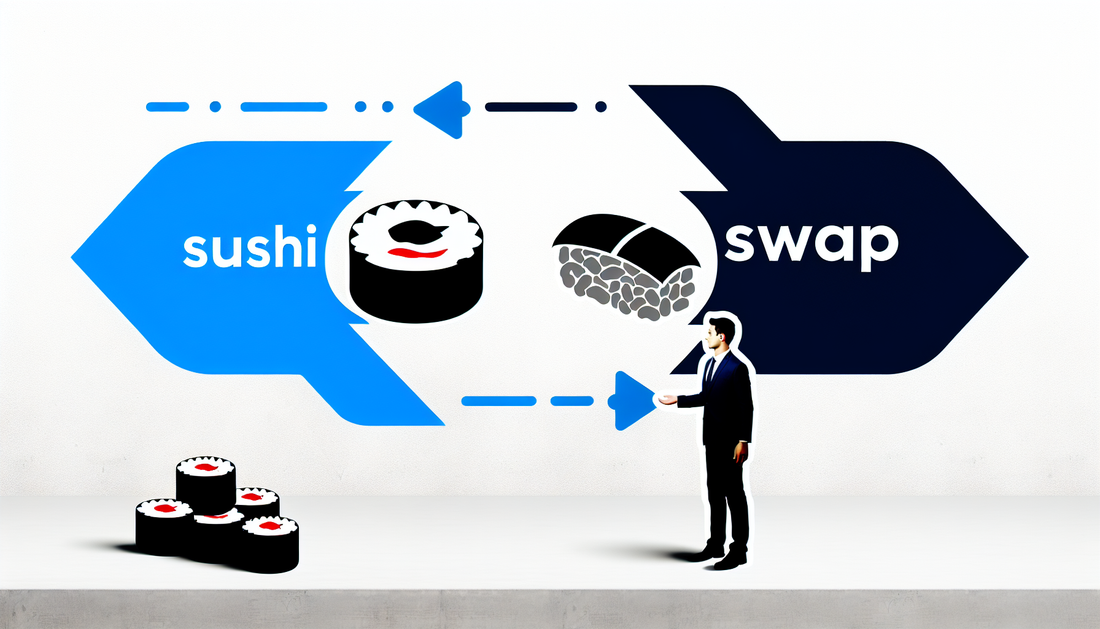
The Rise of SushiSwap: A DeFi Revolution
Share
The History of SushiSwap (SUSHI)
SushiSwap, recognized for its token SUSHI, is a decentralized finance (DeFi) protocol that has made waves in the crypto world since its inception. Understanding its origins provides insight into its significant role in the DeFi landscape.
Launched in 2020, SushiSwap emerged from the growing interest in decentralized exchanges and the broader DeFi movement. At its core, SushiSwap is a fork of the Uniswap protocol, also a prominent decentralized exchange that facilitates the trading of cryptocurrency tokens directly from user wallets. This means that initially, it borrowed heavily from Uniswap’s code but aimed to differentiate itself through various unique features and incentives.
The creation of SushiSwap was notably led by an anonymous developer known as Chef Nomi. The platform's development and launch were shrouded in mystery and quickly attracted both excitement and controversy. Chef Nomi introduced innovative liquidity mining incentives that rewarded users who provided liquidity with SUSHI tokens. These rewards attracted liquidity providers at an impressive rate, helping the platform gain rapid traction within the DeFi community.
However, SushiSwap’s meteoric rise was not without challenges. Shortly after its launch, Chef Nomi took a controversial step by converting a significant amount of developer funds, initially prompting a community backlash. This incident led to concerns about the project's decentralization and governance. In a move that would shape the protocol's future, Chef Nomi handed over control to Sam Bankman-Fried, CEO of FTX, who played a crucial role in stabilizing the project during a critical period.
SushiSwap has since worked to establish a more robust decentralized governance model. The community is granted significant input into decision-making processes, promoting transparency and user influence over the platform's development. This decentralized governance structure is similar to other DeFi projects like those discussed in articles such as The Untold Story of Blockchain-Based Decentralized Autonomous Organizations and Their Role in Shaping Future Governance Models.
Over time, SushiSwap has expanded beyond just being a Uniswap clone. It has introduced a suite of DeFi products, such as lending protocols and yield instruments, to provide users with a more comprehensive DeFi experience. The development and adaptability of SushiSwap demonstrate the dynamic nature of DeFi and highlight the competitive evolution within the sector, akin to other blockchain innovations discussed in The Overlooked Role of Cross-Chain Identity Solutions: Bridging User Sovereignty Across Decentralized Platforms.
With its early controversies behind it, SushiSwap continues to be an influential player in the DeFi space, illustrating the challenges and opportunities inherent in the world of decentralized finance.
